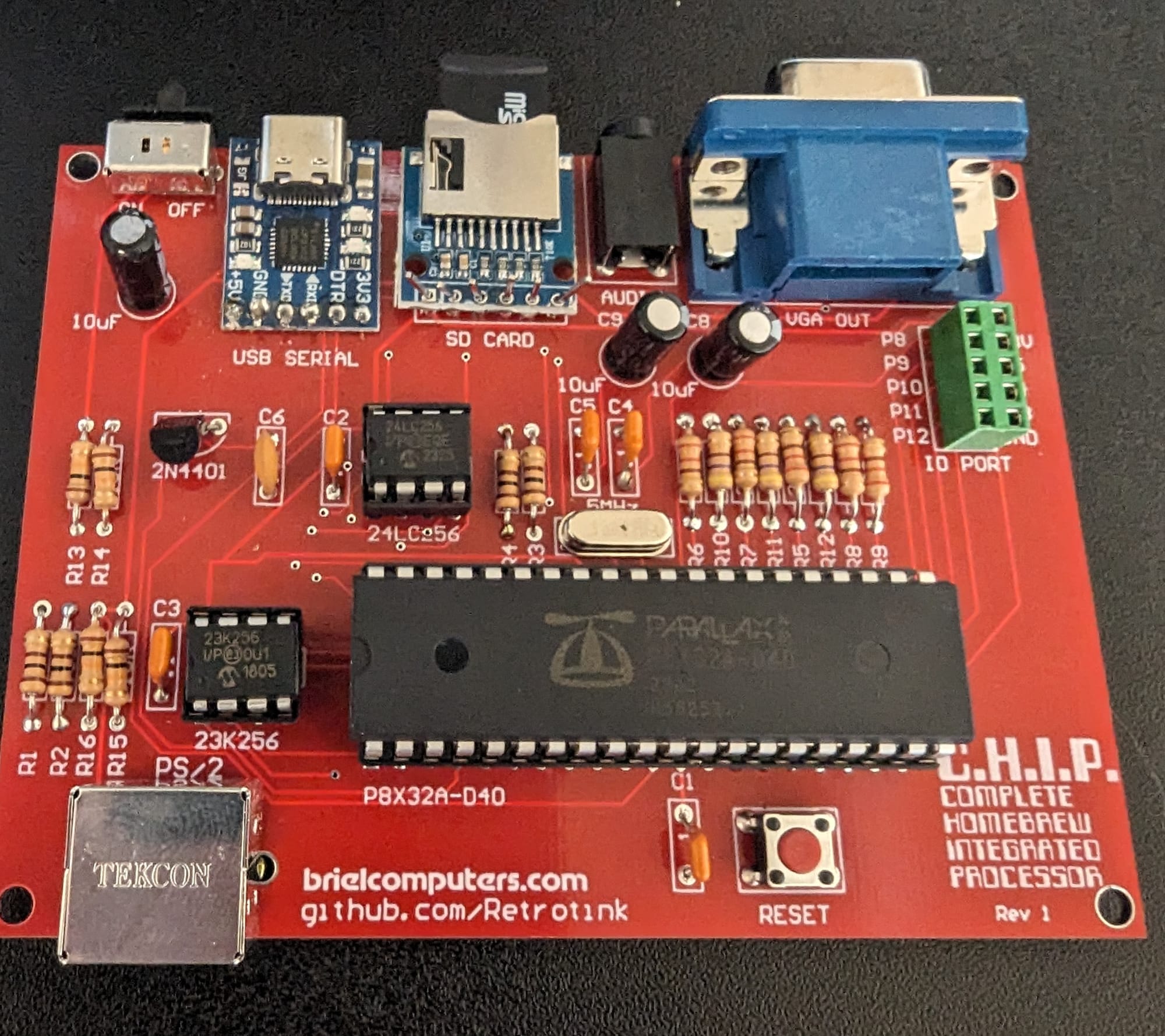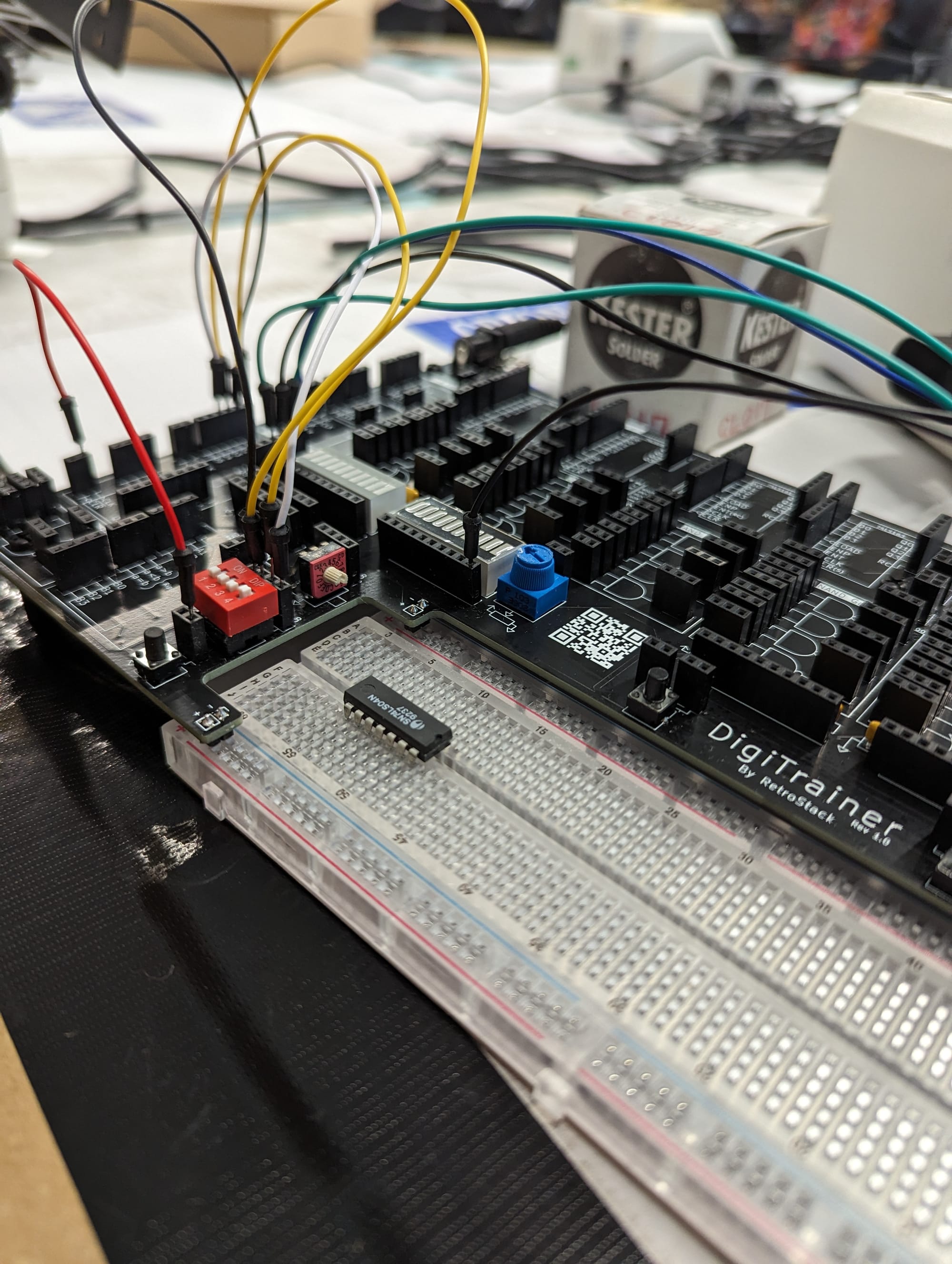What It Means to "Build a Computer"

I had the good fortune of spending the weekend at VCF Southwest, a Vintage Computer Festival that goes to multiple locations. I'd long had a desire to get closer to the hardware than I'd previously been able to, both in terms of the type of work I do day-to-day and in terms of hobbyist projects. I've spent a long time at the application layer, have invested a lot of energy into networking and am now comfortable with all layers, but hadn't yet had the chance to physically build a machine.
It is an interesting turn of phrase to ask if someone has "built a computer." Typically, this question would be interpreted as "Have you assembled a group of pre-built parts that work together and inserted them into a case and connected them?" There is quite a bit to consider there, and that is not a small feat. However, there are 2 additional possible levels of this question. The next deeper level would be "Have you assembled a computer from a kit in which you soldered everything yourself?" The deepest level might be "Have you designed a computer for which you created your own PCBs, decided on the individual components, and created instructions for yourself or a group to follow?"
There is a theoretical level beyond that where one might physically fabricate all the components, but that is so far beyond the reach of the average person in their home it is almost not worth contemplating. This reminds me of Waldo Jaquith's "On the impracticality of a cheeseburger", which is very much worth reading if you have not yet encountered it. Many things appear simple to create from scratch, but the more you learn, the more complex truly owning 100% of the process becomes.
This demonstrates our interdependence on those around us who know another piece of the puzzle, as well as manufacturers, distributors, and transport companies to truly bring our ideas to life. "Building" almost anything is not a one-person show, even if your experience is working alone in a room. The parts had to get to you, it is highly likely that someone other than you created a design that you are basing your work on, etc. To quote an overused but very true statement, truly we stand on the shoulders of giants.
It is easy for hobbyist communities to become insular and unwelcoming to newcomers, either by accident or by design. I am extremely happy to report that 100% of the workshops and sessions I attended at VCF were extremely welcoming to newcomers, which will ensure the continuation of the knowledge needed to maintain old machines in the future.
This brings me to the workshop I attended today, in which I built a computer ("built" on the second level of meaning: I assembled and soldered a kit someone else designed). Despite continuous learning with retrocomputing, networking, doing things like teaching myself HyperCard from the manual as a young child (I loved it), and knowing the concepts of what makes a computer work, I had never actually soldered one myself. I'm very grateful to Vince Briel for creating something that is beginner-friendly, and for leading and supporting the large group that turned out for the workshop. The result of his work and teaching is that I was able to build a working single-board computer in 3 hours with no previous experience (the very computer featured in the image for this post). This is a game-changer for me and makes me feel confident enough to tackle future projects, and perhaps even learn to design my own given the time.
There were so many other amazing sessions and workshops, including a few hour session in which we went from zero to breadboarding a "guess the number" game. I thought there was no way we'd be able to do everything in the time we had, but it happened, thanks to the amazing Marcel Erz and his setup designed for learners (pictured below).

I'd highly encourage anyone interested to consider attending VCF events in the future if you have even the slightest interest in retrocomputing (or computing in general)! Don't be afraid to jump in and see where it takes you.